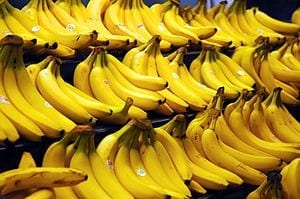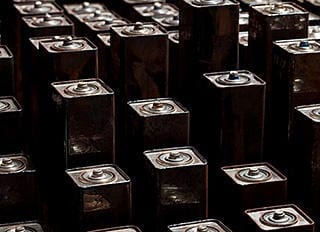
We can keep bananas fresh for up to 12 days
A solution finally may be at hand for the number one consumer gripe about America’s favorite fresh fruit ? bananas and their tendency to ripen, soften and rot into an unappetizing mush, seemingly in the blink of an eye.
Scientists speaking here today at the 244th National Meeting & Exposition of the American Chemical Society, the world’s largest scientific society, described efforts to develop a spray-on coating that consumers could use to delay the ripening of those 6.4 billion pounds of bananas that people in the U.S. eat every year.
The coating is a so-called “hydrogel,” a superabsorbent material like those with many medical and commercial uses, made from chitosan, a substance derived from shrimp and crab shells. Xihong Li, Ph.D., who presented the report, noted that chitosan is attracting considerable attention in efforts to keep fruits and vegetables fresher longer due to its action in killing bacteria that cause produce to rot, low cost and other properties. Until now, however, it has not been used to slow the ripening of bananas.
“We found that by spraying green bananas with a chitosan aerogel, we can keep bananas fresh for up to 12 days,” said Li, who is the study’s leader. “Once bananas begin to mature, they quickly become yellow and soft, and then they rot. We have developed a way to keep bananas green for a longer time and inhibit the rapid ripening that occurs. Such a coating could be used at home by consumers, in supermarkets or during shipment of bananas.”
Li explained that bananas, like other fresh fruit and vegetables, are alive and actually “breathing,” or respirating. He is with Tianjin University of Science and Technology, Tianjin, China. Like other fresh fruit and vegetables, bananas stay alive after picking. Like people, bananas breathe, or respire, taking in oxygen and releasing carbon dioxide ? but through their skin. The more a banana respires, the quicker it ripens. Unlike many other fruits, the respiration rate in bananas does not slow down, and bananas do not ripen slowly. The banana’s pulp releases a chemical that boosts respiration, and the pulp converts into the sugars that produce that sweet, banana taste. As respiration continues, however, the process speeds up, and bananas become unpleasantly sweet and mushy. Bacteria on the banana skin start to thrive and cause the banana to rot.
via American Chemical Society
The Latest Streaming News: Over-Ripening updated minute-by-minute
Bookmark this page and come back often
Latest NEWS
Latest VIDEO








